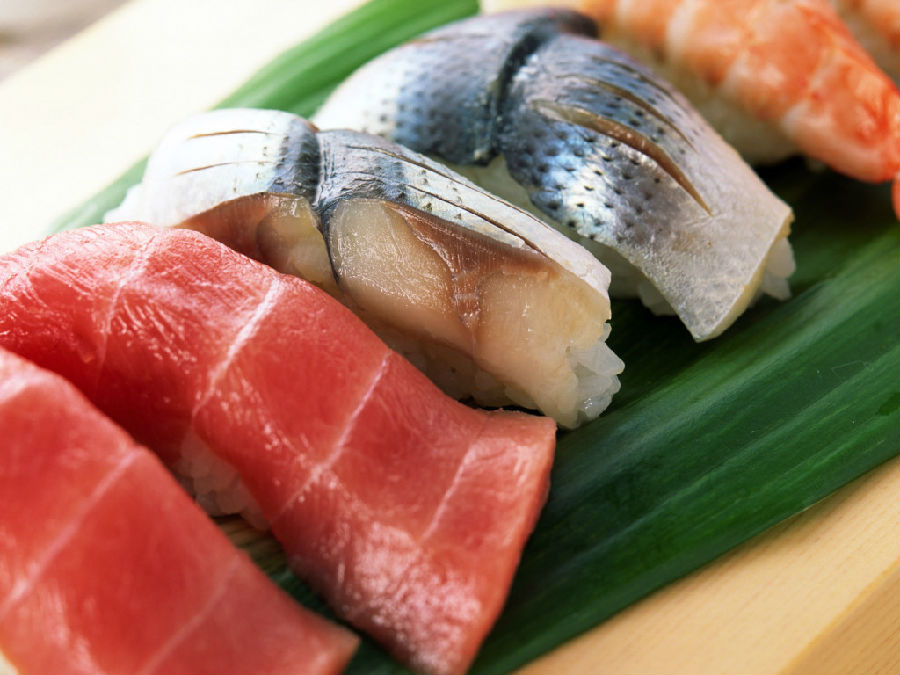(单词翻译:单击)
听力文本
WILLIAM BRANGHAM: Today, of course, is Friday, and in many cultures, that's the day to eat fish. But the health of our oceans may be in danger from a different part of the fish industry, the booming market for fish oil supplements. Now, Paul Greenberg, author of three books on the fishing industry, offers his Humble Opinion on why we should simply eat more of the real thing.

PAUL GREENBERG, Author, Four Fish: The Future of the Last Wild Food: The average American eats only around 14 pounds of seafood per year, compared to over 200 pounds of meat. Yet some 18 million American adults, nearly 8 percent of the adult population, take fish oil supplements. As we think about eating light and getting healthy, my advice is to skip the pill and eat the fish instead. First off, most omega-3 supplements come to us from little fish that big fish like to eat. Anchovies, herring, sardines, these essential creatures are the targets of what is called the reduction industry, a multibillion-dollar business that boils down tons and tons of marine life into fertilizer, animal feed and, yes, dietary supplements. If we left those little fish in the water, there'd be many more big fish to eat. No-brainer, right? And if you get past the supplement fixation, it's clear that fish and shellfish are much more than simply vessels for omega-3s. Fish are low in fat, high in protein, and overall a much lower-calorie way of getting essential nutrients into our bodies. Yes, there are issues with mercury contamination with bigger fish, but it turns out that all those little fish that we normally reduce into supplements and animal feed are some of the lowest in mercury and other pollutants. Perhaps most surprising, seafood, both farmed and wild, turns out to have some profound ecological advantages. Carbon footprint, freshwater use, and conservation of open space all come out better with a seafood-leaning diet than a land meat diet. That's because land animals stand, while fish float. A large portion of the food we have to feed land animals to bring them to market gets burned up simply by land animal's resisting the pull of gravity. Fish, meanwhile, use all that energy to grow more meat for the table. And farmed mussels and oysters are even better. You don't have to feed those guys anything. They get bigger and fatter just by filtering the water. Of course, we shouldn't eat seafood with abandon. A couple meals a week. Try some clams or mussels and smaller fish like anchovies. And we should stay away from wild fish and shellfish that are overharvested and farmed seafood grown using unsustainable practices. After all that, if you feel like you must take a pill, there are now supplements made from much greener alternatives, like algae. In short, get your omegas. Just be principled about it.
重点解析
1.turn out 原来是
Cosgrave's forecast turned out to be quite wrong.
科斯格雷夫的预测最后证明是大错特错。
2.in danger 危险
He was in danger of making a real cock-up of this
他很有可能会把这事弄得一团糟。
3.stay away from 远离
A lone mother Canada goose honked a warning to stay away from her nest.
一只孤独无伴的雌性加拿大黑雁鸣叫了一声,警告别人不要靠近它的巢。
4.in short 总之
In short, he is one of the most promising students I've ever known.
总之,他是我见过最有希望的学生之一。
5.come out 结果是
In this grim little episode of recent American history, few people come out well.
在美国近代史上这一小段阴暗时期,很少有人能有好的结果。
参考译文
威廉·布兰汉姆:今天喜迎周五,在很多国家,周五都是吃鱼的日子。但海洋健康可能正因渔业中不同寻常的一个领域而面临威胁:愈发兴旺的营养品——鱼油。本期我们请到了保罗·葛林柏,他曾写过3本与渔业有关的书籍。他将与我们分享他对于人类应该更多地摄入真材实料的看法。
保罗·葛林柏,作者,《四条鱼:野生食物的未来》:普通美国人平均每年会进食14磅左右的海鲜。与此对比的数据是每年200多磅的肉。不过,近1800万美国成年人,也就是美国成年人总人口中的8%,吃的是营养品——鱼油。由于大家越来越关注进食热量低的健康食品,所以我的建议是;不要吃鱼油丸,直接吃鱼就好。第一个原因是:大多数Omega-3的营养品都取自于小鱼的身上,即大鱼喜欢吃的那种小鱼。小银鱼、鲱鱼、沙丁鱼,这些都是必要的生物,却成为鱼油业捕捉的目标。这个价值数十亿美元的行业将无数海洋生物变成了肥料、饲料和食品强化剂。如果放这些小鱼回水里,我们就有更多的大鱼可以吃。很简单的道理,不是吗?如果大家对营养品的成分有所了解,就应该知道,鱼类和贝类里富含omega-3。鱼类的脂肪含量很低,蛋白质含量却很高,总体来说,既可以让我们低热量进食,又能让身体补充到必要的营养。没错,大鱼现在有汞污染的问题。但我们却发现,我们用来制成营养品和动物饲料的小鱼汞污染等污染程度最低的。或许更让人震惊的是:海鲜无论是野生的还是人工养殖的,都有很多生态方面的优点。碳排放量、淡水使用、空地保护,这些都会随着人们食谱对海鲜的重视而得到优化,效果好于以陆生动物为食。这是因为陆地动物是靠脚行走,而鱼是靠游的。在将陆生动物销售到市场上之前,我们喂给他们的很多食物都被烧掉了,因为陆生动物对重力的抵抗。而鱼类却会用这些能量来长更多的肉,然后才会上餐桌。人工培育的扇贝和牡蛎就更是优选了,因为它们根本不需要喂。只需要对水进行过滤,它们就能长得又肥又大了。当然了,我们也不能毫无节制地进食海鲜,一周吃几顿就好啦。与此同时,也可以尝试一些蛤蚌、扇贝和小鱼。我们不应该进食过渡捕捞的野生鱼和贝类动物,也不要进食用不可持续方法培育出的海鲜。如果大家在做到这些之后,依然觉得有必要服用鱼油丸的话,还有更绿化的选择哦,比如藻类营养品。简言之,收起omega吧。这样的举动应该成为我们的原则。
译文为可可英语翻译,未经授权请勿转载!


